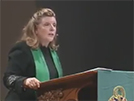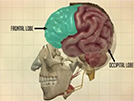2. Parents’ Rights in the Qur’Än
- Details
- Hits: 2172
2. Parents’ Rights in the Qur’Än
As the children step into adulthood, parents proceed towards old age. The children, in their childhood, need the protection of their parents; and the parents, in their old age, need the kindness of their children. Allah, subhanahu wa ta`ala, says:
“If We grant long life to any, We cause him to be reversed in nature (i.e., from strength to weakness).” (36:68)
The three types of parents' rights mentioned earlier are based on the following verses of the Qur'Än:
Your Lord has decreed that you should worship no one but Him and that you should • be kind to your parents; • and if one or both of them attain old age in your life [and become angry with you for some reason], then do not even say to them ‘Oh’ [in contempt], nor should you repel them. Instead, you should address them in respectful manner. • And out of kindness, behave with them humbly. • And [pray for them by] saying ‘My Lord! bestow upon them Your mercy just as they cherished me in childhood.’ (17:23-24)
In many verses, the Qur'Än has combined the kindness towards the parents side by side with the worship of Allah. “Worship Allah and join not any partner with Him and do good to parents...” (4:36)In verse 17:231, it says: “And your Lord has decreed that you worship none but Him, and that you should be kind to parents...”
Obedience to the parents is a mirror of obedience to Allah. For example, in verse 31:14-15, Allah says: “And We enjoined on man (to be good) to his parents...Show gratitude to Me and to your parents. To Me is your return. And if they strive to make you join in worship with Me things of which you have no knowledge, then do not obey them; yet bear them company in this life with fairness and consideration.” The last sentence means that you should be kind to your parents even if they are non-Muslims; however, you should not obey them if they ask you to do anything against the teachings of Islam.
We find that the Qur'Än and hadith has emphasized more on the rights of the parents than the rights of the children. Why?
The fact is that the parent's heart is the fountainhead of the love for the child; this affection becomes the life-blood of the parents. The Qur'an has alluded to this instinctive parental love in several places. On the other hand, children especially when they are no longer in need of parental care, do not feel so much love for the parents. We are not speaking about respect. Here the talk is about instinctive love; and experience is a reliable witness to confirm this observation. Allah, subhanahu wa ta`ala, says: “Your parents and your children, you know not which of them are nearest to you in benefit.” (4:11)
It is a known fact that signposts are not needed on a road going straight; but at a crossroads where several routes branch out, one cannot expect to get onto the right path without a guide or a sign-post. It is for this reason that Islam does not emphasize in so many words those aspects of life which are taken care of by human nature itself. It is where the hold of natural instinct is loosened that Islam extends its helping hand and leads man onto the right path by telling him what he is expected to do. It is for this reason that Islam did not emphasize the rights of children so forcefully; but full emphasis was given to the rights of the parents.











